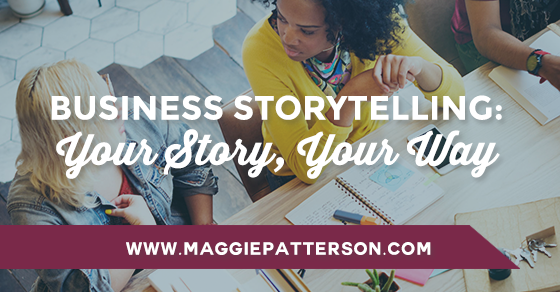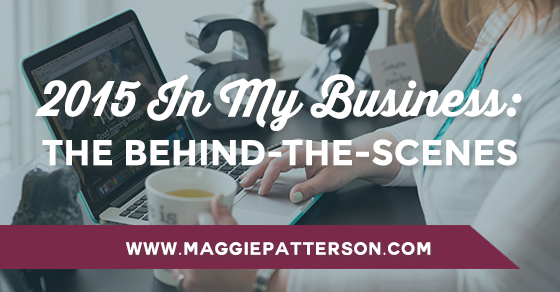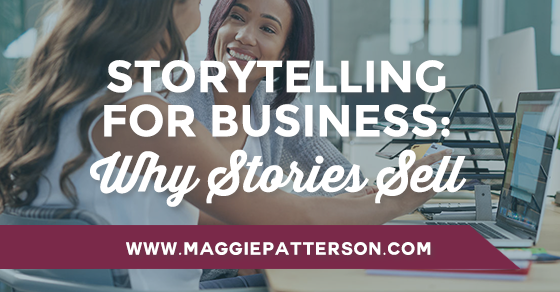
The year was 1995. I was down to my last $2.00 and was two weeks away from having my student loan clear the bank.
After scavenging around the house for loose change to do a load of laundry, I headed to the laundromat to wash my clothes. The only hiccup was that I didn’t have enough to dry them so I hauled the wet clothes home in a hockey bag through the February ice and snow.
As I walked home from the laundromat, trekking uphill with my furry boots slipping on the ice, I made a decision that would change my life. Never again would I have only $2.00 to my name. The stress, shame and uncertainty wasn’t something I ever wanted to feel and not how I wanted to live my life.
The experience of being a broke student fueled my future. But what does that have to do with storytelling?
It’s simple. That story is personal. And definitely on the more depressing side of things. You may relate to it, but if you don’t have a story of that nature, you may be feeling you can’t tell stories in your business.
So much of the storytelling we see out there shares adversity, struggle and how we’ve gotten through it. And while this type of storytelling is valid, it’s not the only game in town.
Sometimes when it comes to telling a story in your business, it doesn’t need to be that deep. Sometimes things just aren’t and it’s totally okay for you to tell a story that’s lighthearted, quirky or so funny your audience will snort.
My Story Just Isn’t That Interesting
So many times I hear my clients or community say that their story “isn’t that interesting” and nothing could be further from the truth. The problem is they think that their story isn’t good enough because it’s not dramatic or involves overcoming something against great odds.
If you grew up like I did in an average middle class family, went to college, got a job and then got married (aka following the checklist) you’re bound to feel that way when it comes to sharing your stories. Because you didn’t necessarily have a major plot twist or a moment that’s going to be featured in an Oscar winning film.
Great storytelling isn’t about the big moments. It’s about understanding the purpose of storytelling as part of your message and brand. Stories help make your message more engaging and emotionally connect with your audience.
(Click here to get the Storytelling Shortcut and get on your way to telling engaging stories.)
The emotion you set out to evoke is up to you.
You may choose to get your audience to feel joy or laugh out loud. Maybe you want them to feel excited, ecstatic or elated.
Storytelling doesn’t have to always be inspirational or aspirational. The goal is to create a message that resonates because the reader, listener or viewer can relate to and remember it.
That’s where the know, like and trust factor starts and gets strengthened over time.
Telling YOUR Best Stories
What kind of stories should you tell? That’s up to you.
Your approach to storytelling can be whatever you want it to be. Maybe it’s a mix of quirky and plain comical, or it’s sweet and salty as you share the good, bad and ugly sides of building your business.
The real secret is to make it yours and not to worry about what your “competitor” or the “big name” in your industry is doing. After all, you’re so much better than a sad knockoff, recycled, rags to rich story that doesn’t quite land.
If they all zig, you can totally zag. Because that’s what makes you stand out and makes your stories completely irresistible.
As Sally Hogshead, the creator of the Fascination Advantage says, “Different is better than better.” So don’t be better with your storytelling. Be different.
You can be the coach with yet another tired “how I quit my job story”, or the one with a knack for short, hilarious and completely out-there stories about your real life and how that relates to business.
Choose your stories wisely because the biggest threat to your business is never the competition. It’s you not doing what it takes to escape obscurity.
Do what it takes to bring all your wonderful weirdness to your storytelling and let the notions of what your story “should” be, go.
Sometimes it’s just not that deep and that’s okay.
Let your stories be more and explore how you can up your fun factor. I promise you, you’ll have more fun and your tribe will appreciate that you bring a little bit of light and levity to their day.


